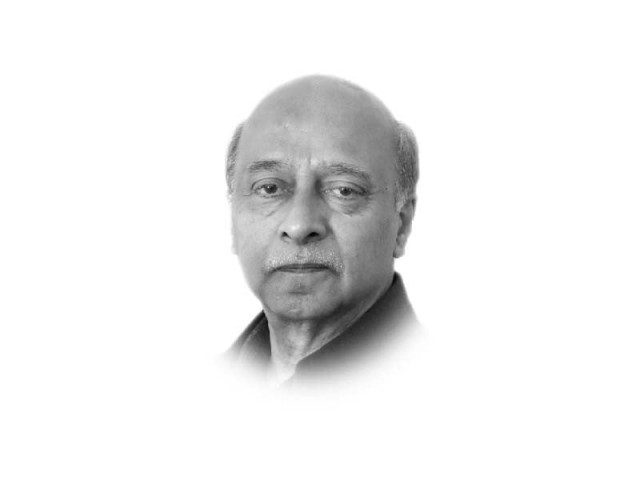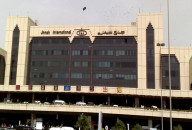Pakistan under shadows of hybrid warfare
For Shabbar Zaidi this means the present model — hijacked by deeply entrenched forces of status quo — is not workable

If consequences of a hybrid warfare had any real life manifestation, it is the present-day Pakistan with acute political discord, crippling economic crisis and simmering but debilitating (in)security challenges. It stands out as the living example of a notion (hybrid warfare) that its military establishment has been touting as the major cause of the country’s negative outlook abroad and internal politico-economic instability. The ‘unity’ government, led by PM Shehbaz Sharif, is at best fledgling because of the intrinsic deep enmity between PPP and PML-N. Forex reserves have alarmingly depleted from $17b six weeks ago to under $10b. The current account deficit is expected to be over $16b. Power and gas circular debt is hovering over Rs3,000b.
Even more alarming is the looming expected outflow of at least $5b by end of June. Net repayment due in 2023 and 2024 is estimated to be over $10b. Ex-FBR chairman Shabbar Zaidi sees no chance to avoid default “if there is no substantive inflows or rollover”.
Let’s first understand what is hybrid warfare? A report by Carnegie Europe by OVANA MAROVIĆ says hybrid warfare includes a variety of activities and covers the use of different instruments to destabilise a society by influencing its decisionmaking. Frequent instruments include: interference in electoral processes; disinformation and false news; cyberattacks; drone attacks; and financial influence.
Another report in Nato Review by Arsalan Bilal says conflicts are (now) fought in new, innovative, and radically different ways. With the advent of modern hybrid warfare, they are less and less about lethal or kinetic force. It has gained significant currency and relevance in recent years as states employ non-state actors and info tech to subdue their adversaries during or— more importantly — in the absence of a direct armed conflict.
Pakistan has indeed suffered almost every of the aforementioned factors. One major manifestation is the strained and stretched security apparatus, particularly in the northwestern and southwestern territories where forces are regularly losing men to proxy terrorists. The armed forces are engaged in a two-front warfare in border regions.
But, worse is the the financial influence through IMF which is now tellingly holding the state on the edge. How? Very simple; the financial sector is hanging by a thread and literally tied to talks with IMF. Imagine the financial viability of a nuclear-armed country of 220 million inhabitants, with over half a million armed forces, being currently held hostage to a paltry $1b IMF tranche.
And this $1b holds the key to the rollover of at least $6b by China, UAE and Saudi Arabia — all of whom are said to have made the rollover conditional upon a deal with IMF. Isn’t it a direct existential consequence of the hybrid warfare that the establishment has been drumming up for years without recalibrating its approaches to defence and political economy of the country?
To top it all, PM Shehbaz — facing indictment in a multi-billion money laundering case — flew to London to consults his elder brother — an absconder– and his other key aides.
For Shabbar Zaidi this means the present model — hijacked by deeply entrenched forces of status quo — is not workable. Assets and liabilities are to be realigned, as assets are unutilised and liabilities mounting.
This has not resulted from an externally imposed hybrid warfare alone; it stems from the inherent inadequacies of the political economy. Who is actually bothered about it? Politicians, GHQ, media, business tycoons, bureaucracy?
In other words uncertainty and absence of real structural reform is leading Pakistan down the path of insolvency. Can any number of forces, defence systems or even nukes prevent the specter of bankruptcy? Vested interest has only exploited these fault-lines as part of a possible hybrid warfare.
Time is up to review the money-guzzling public governance model and rationalise the hyped-up but financially overbearing security apparatus. If we don’t, the state may sink into a perilous irretrievable situation.
Even if the externally-driven hybrid warfare were a reality, this must not deflect from the grave reality. Taliban next door may have enforced an abrupt US withdrawal but Pakistan is certainly paying the price for the perceptions associated with the Taliban return to power. It is a massive cost a country is paying for delusional and questionable ‘strategic’ conduct.
Published in The Express Tribune, May 18th, 2022.
Like Opinion & Editorial on Facebook, follow @ETOpEd on Twitter to receive all updates on all our daily pieces.














COMMENTS
Comments are moderated and generally will be posted if they are on-topic and not abusive.
For more information, please see our Comments FAQ